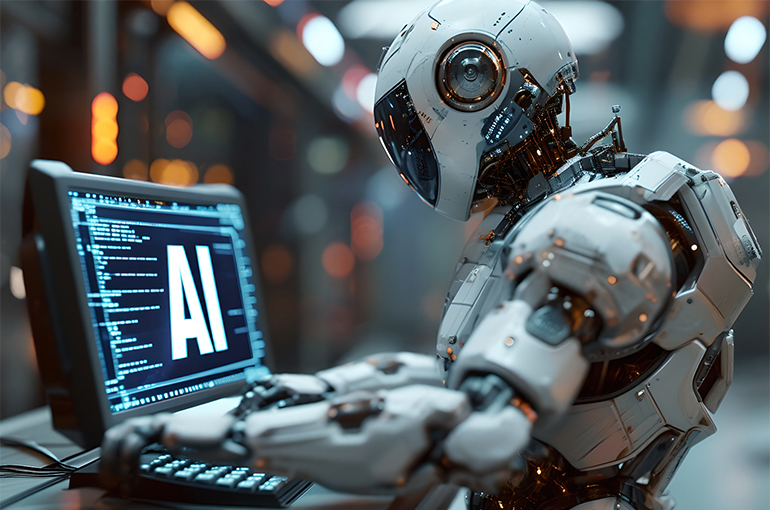 From Hype to Impact: How AI is Already Changing The Game Across Industries
From Hype to Impact: How AI is Already Changing The Game Across Industries(Yicai) June 24 -- Artificial intelligence is often spoken about in future tense — a powerful force that could transform economies, might reshape industries and may redefine society. But while the world debates what’s next, something remarkable is already under way: AI is here, and it’s delivering impact now.
AI is already transforming entire systems and sectors at scale, with profound societal significance. The question is no longer whether AI works – but how we maximize its benefits while managing its risks.
Earlier this year, the World Economic Forum launched the MINDS programme – focused on 'Meaningful, Intelligent, Novel, Deployable Solutions' – to surface real-world examples of AI delivering measurable progress.
We expected interest. What we received were hundreds of applications from companies around the world, each demonstrating that AI is not just an idea whose time will come – it’s a tool being applied at scale to tackle real challenges today. The first MINDS cohort has now been selected, and their case studies provide a blueprint for where AI is creating value now.
These are not pilot projects or glossy demos. They are deployed systems solving complex problems – making trains run more efficiently, supply chains more resilient, healthcare more accessible and financial systems more intelligent. Among the many impressive winners in this year’s MINDS cohort, these examples offer just a glimpse of the scale and diversity of solutions already in motion.
Financial transformation in China: ICBC’s AI core
The Industrial and Commercial Bank of China, one of the world’s largest banks, built a 100-billion-parameter language model tailored for financial operations. Deployed across 15,400 branches and 400,000 employees, the model has delivered more than CNY500 million (USD69.5 million) in added capital allocation profit and is used daily by 20,000 staff. As this is the first batch, it is now scaling to serve 600,000 users and millions of automated resolutions per day, redefining intelligent financial infrastructure.
AI in manufacturing from China's Taiwan: Foxconn’s Project Genesis
Foxconn has launched Project Genesis, an AI platform redefining the future of electronics manufacturing. Applications like FactoryGPT and Setpoint are automating decision-making across thousands of systems in Foxconn’s global operations. These tools handle 80% of the workload, enabling experts to focus on the final 20%. Genesis goes beyond isolated use cases – it's an ecosystem that tokenizes expertise and coordinates operations through AI agents. With deployments under way, Genesis is projected to unlock up to USD800 million in value.
Resilient global operations from China: Lenovo’s AI-driven supply chain agent
Lenovo is redefining supply chain management with iChain, an AI-powered agent that serves as the brain of its global operations. iChain orchestrates demand forecasting, supplier risk, inventory optimization, and logistics routing using real-time data and hybrid AI. Disruptions are flagged up to two weeks earlier, shipment accuracy is up 30%, and carbon reporting cycles are three weeks shorter. This marks a shift to scalable AI decision-making that drives resilience, sustainability, and competitiveness.
Healthcare innovation in China: Ant Group’s multimodal AI platform
Ant Group has built a multimodal, privacy-preserving AI system spanning the patient journey – from diagnosis to recovery. Used by 40 million patients and 290,000 doctors across 3,000 institutions, the platform delivers diagnostic accuracy above 90% and has reduced medical literature search times by 80%. With plans to scale toward 580 million users, it offers a model for trusted, nationwide health AI infrastructure.
Democratising battery cell design in China: Electroder & Tsinghua University
Battery cell design that once took up to three years now completes in weeks. Engineers simply type a goal – “raise energy density” – and the cloud platform runs physics-grade AI simulation models across 70 variables, returning an optimal cell blueprint with citations. Early projects cut concept-to-prototype time 3.6×, and trim material and energy waste 40%. The partnership between battery design and software services company Electroder and the Battery Design and Manufacturing team at the Tsinghua University aims to give thousands of firms instant access to enterprise-level battery R&D.
AI transformation of industries needs to be shaped responsibly
These examples challenge the dominant narrative. AI is not “coming soon”, it is already reshaping how we work, live and solve global challenges. The shift is not one of possibility, but of scale, maturity, and societal relevance.
So, the real question is no longer if AI will transform industries, it’s how leaders will shape that transformation responsibly. Doing so requires a shift in mindset: away from isolated tools and toward full-system reinvention, where real-time data, domain-specific design and human oversight work in concert to unlock value.
It means making AI not only powerful, but accessible and trustworthy – democratized across sectors, regions and institutions to close the digital divide and foster shared prosperity. And above all, it demands purpose-driven leadership: a commitment to deploying AI not just for efficiency, but to deliver smarter infrastructure, better care, and more resilient systems that benefit society as a whole.
At the World Economic Forum, we launched the AI Governance Alliance and initiatives like MINDS to accelerate this shift, turning hype into meaningful impact. These stories show that AI’s future isn’t speculative. It’s already here. And it's the result of choices we’re making – now.
(By Cathy Li, Head of AI, Data and Metaverse; Member of the Executive Committee, World Economic Forum)